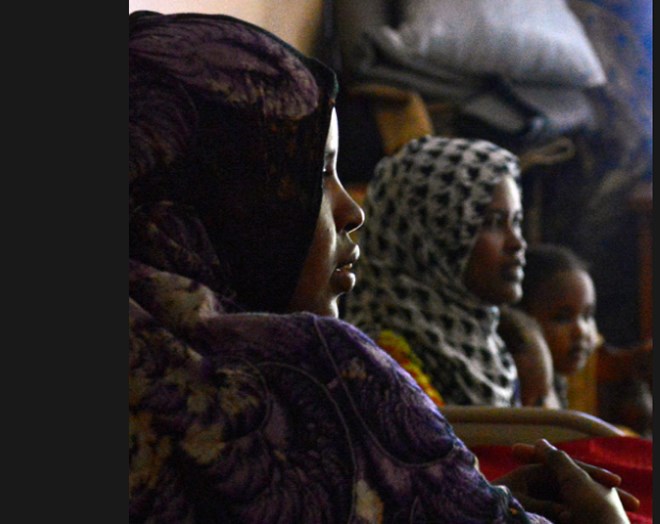Roda Abdi took her first steps in Ethiopia, where her mother had fled to escape war in Somalia. She grew up a foreigner. But her next home would be even more foreign.

BY ANNA SUTTERER
Columbia Missourian
COLUMBIA, MO.
Friday, July 22, 2016

Roda Abdi took her first steps in Ethiopia, where her mother had fled to escape war in Somalia. She grew up a foreigner. But her next home would be even more foreign.
Last August, Abdi traveled from an Ethiopian refugee camp with her two young children and stepped off their fifth and final plane at the Columbia Regional Airport. She was the first of her family to arrive in the U.S.
"It was hard to travel with the kids," she said, using a translator named Shukri Hussein.
"Carry this one, push that one, running."
According to the Columbia Missourian (http://bit.ly/29Wi5xX ), they'd spent seven years at a camp in Jigjiga, Ethiopia, waiting for multiple background checks, medical examinations and a U.S. nonprofit to sponsor them in order to gain refugee status and plane tickets.
Other members of her family joined them in October: Abdi's mother, Amina; her brother, Aidrus; and her sisters, Romla and Halimo. But even after nine months of acclimating to a new culture together, there is still a lot to figure out.
Especially when it comes to health care.
Kristin Sohl, a doctor at the MU Thompson Center for Autism, knows it can be tough for refugees to navigate the health care system. Especially when it comes to kids.
"We are a community that has an ever-growing population of refugees," she said. "No matter your political beliefs or associated feelings about refugees, they're here."
Sohl and a team of MU medical professionals formed a council in March called the Interagency Council of Immigrant Health to discuss how health care providers and community members can better serve refugee families. Members call their current plans Project R.E.A.C.H., which stands for Refugee Education and Access to Child Health.
The council includes medical professionals, local nonprofit leaders, teachers and staff from Columbia Public Schools, librarians and refugees. They hope to pool resources and knowledge in order to help both health care providers serving refugees and refugee families.
The council was formed after Sohl and Kristin Koehn, a pediatrician at MU Children's Hospital, received a grant from the American Association of Pediatrics. The grant is specifically for Columbia's growing East African refugee population. However, Sohl said that will not stop the council from possibly working with other refugee and immigrant communities as well.
Columbia is expected to receive 210 refugees for the 2016 fiscal year that ends in October, according to an email from Grace Wildenhaus, a coordinator at Columbia's Refugee and Immigration Services office. Fifty-seven of those individuals are from the East African countries of Eritrea, Somalia and Ethiopia.
"We, as a community, want to make their resettlement smooth," Sohl said.
Mohamed Dek, Roda Abdi's 2-year-old son, leaned forward. On the TV screen, "Spiderman" teased a princess.
Dek giggled. Laughter has no language barrier.
When the family first arrived, Dek got sick and lost his appetite as his body adjusted to "weather differences," Roda Abdi said. He is getting much better.
The Abdi family has a primary care doctor and a ride to their appointments. Roda and her children have Medicaid, and her mother and siblings are working with the Central Missouri Community Action office to get health insurance.
Yusuf Mohammed, the Abdi's case manager at Refugee and Immigration Services, said the office has 90 to 180 days to help clients get their basic needs covered. That includes housing, employment, Social Security cards, a primary care doctor, Medicaid and information about how to ride public transportation.
It's a lot to sort through.
Refugees can continue visiting the Refugee and Immigration Services office for up to five years after their arrival, at which point they are eligible for citizenship and are expected to be self-sufficient, Mohammed said.
The council hopes to aid that process.
---
Information from: Columbia Missourian, http://www.columbiamissourian.com
An AP Member Exchange shared by the Columbia Missourian